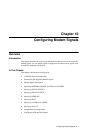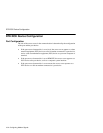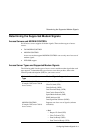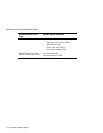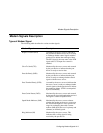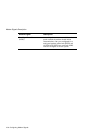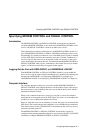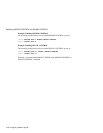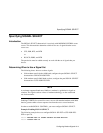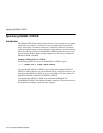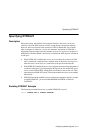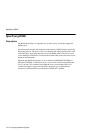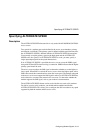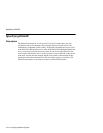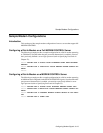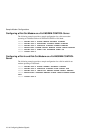
Configuring Modem Signals 10-9
Specifying SIGNAL SELECT
Specifying SIGNAL SELECT
Introduction
The SIGNAL SELECT characteristic is used only with MODEM CONTROL access
servers. This characteristic determines which of two sets of signals that the access
server uses:
• CTS, DSR, RTS, and DTR
or
• RI, DCD, DSRS, and DTR
The port device must be cabled correctly to work with the set of signals that you
choose.
Determining When to Use a Signal Set
The following shows when to use these signals:
• If the modem speed is below 9600 baud, configure the port SIGNAL SELECT
characteristic to RI-DCD-DSRS-DTR.
• If the modem speed is 9600 baud or above, configure the port SIGNAL SELECT
characteristic to CTS-DSR-RTS-DTR.
NOTE
A maximum supported baud rate of 9600 on a modem is a guideline for signal set
selection. The signals used are a factor of modem technology,
not
the actual baud
rate for data tranfer.
Enabling CTS/RTS flow control for access servers with attached modems with 9600
baud or greater enables a faster response time from the access server hardware.
In order to enable SIGNAL CONTROL, you must configure SIGNAL SELECT.
Example: Enabling SIGNAL SELECT
The following example shows to configure SIGNAL SELECT to CTS-DSR-RTS-
DTR on port 10:
Local> DEFINE PORT 10 SIGNAL SELECT CTS-DSR-RTS-DTR
Local> LOGOUT PORT 10



